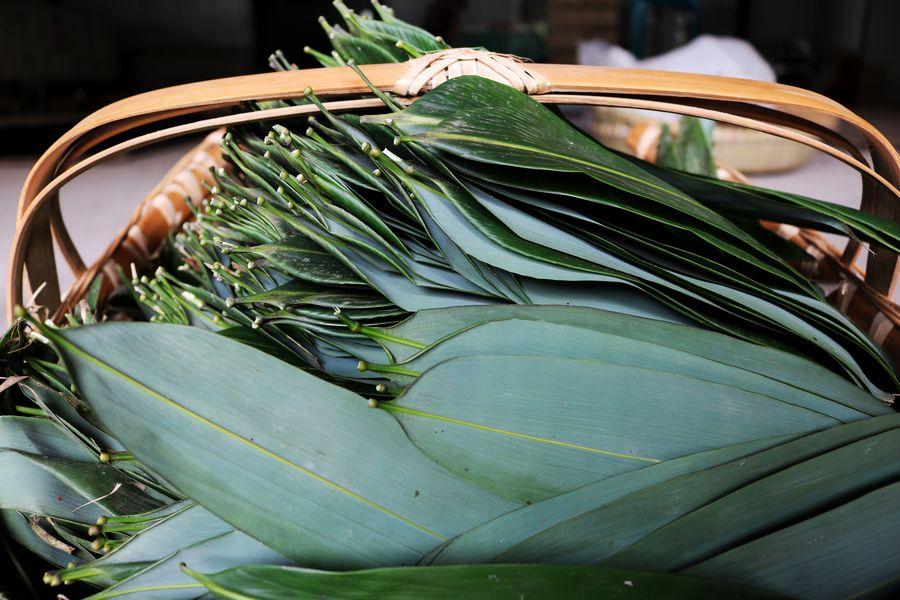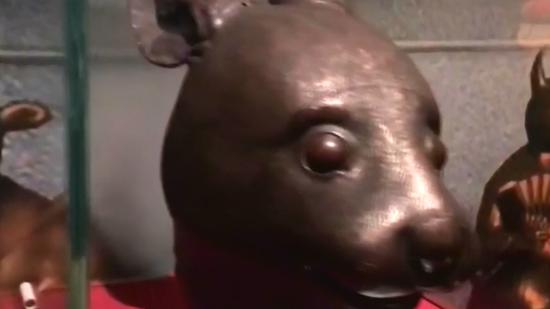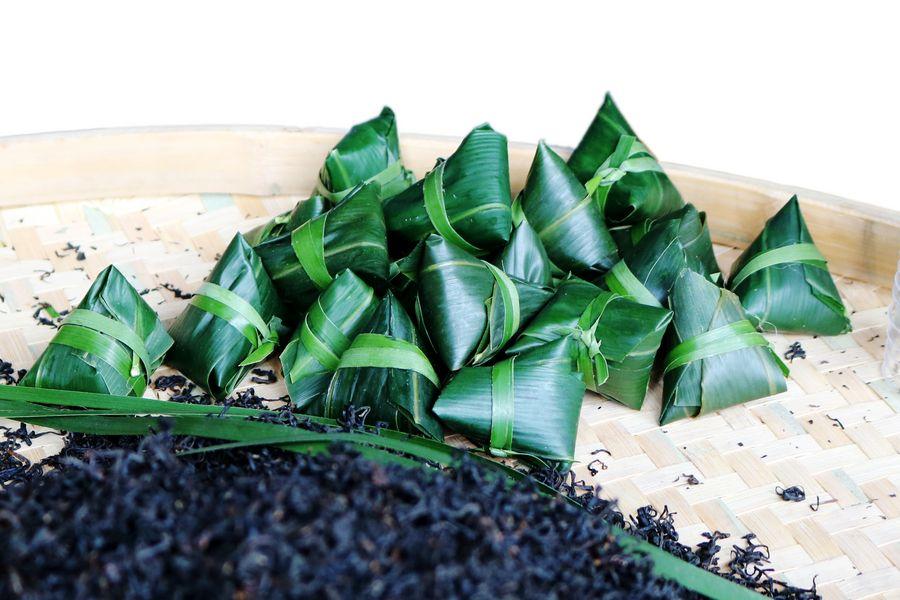
Keemun black tea wrapped by ruo leaves (Photo provided to Xinhua)
At a factory in Anhui Province, east China, workers are expertly folding ruo leaves into triangular parcels. At first glance, it seems they are making zongzi, a glutenous rice snack that is steamed inside a leaf casing. On closer inspection, however, it is not rice inside the leaves, it's tea!
"The fusion of ruo leaves and Keemun black tea produces a charming fragrance when brewing with hot water," said Jiang Xuexia, owner of this factory.
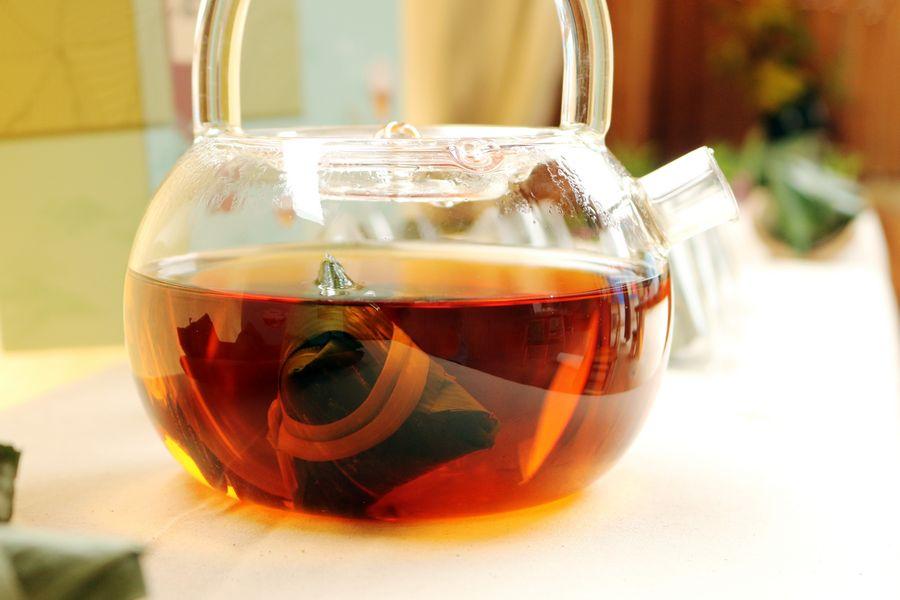
Brewing black tea with hot water (Photo provided to Xinhua)
Five years ago, Jiang moved back to Qimen County in Anhui to establish the tea factory with her sister Jiang Xueqing. The area is world famous for Keemun Black Tea. The tea, with a unique floral fragrance resembling scents of orchids and honey and a mellow flavor, is recognized as one of the three most fragrant teas worldwide.
The idea to fuse black tea with zongzi came about entirely by accident. "After watching our mom make some zongzi and store them for when guests would visit, my sister was taken by the idea of how tea might taste if it was prepared the same way," said Jiang Xuexia.
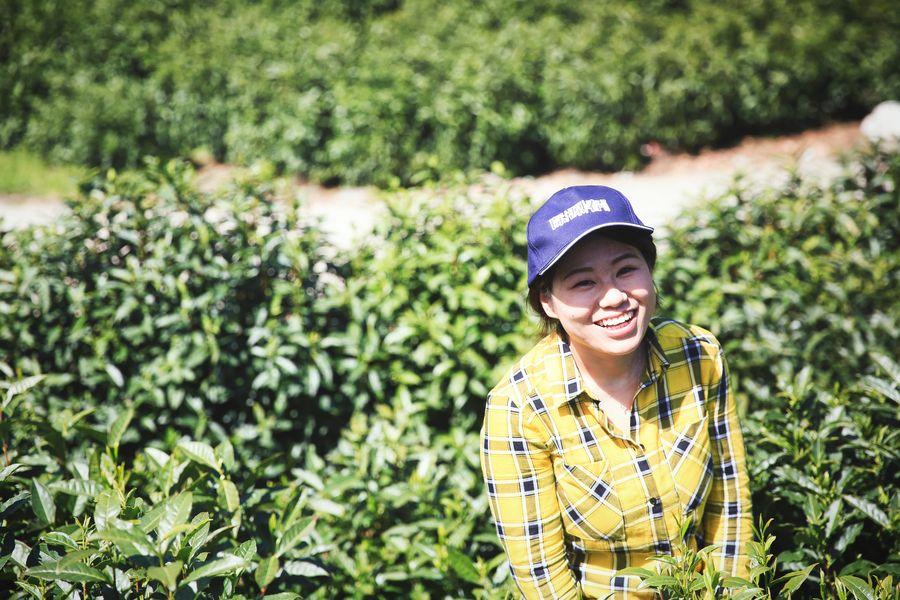
Jiang Xuexia in a tea plantation (Photo provided to Xinhua)
The sisters then did a lot to turn the idea into practice.
"We tried many ways to make sure the ruo leaves did not lose their color during brewing. We had to experiment to find out the optimum tea weight and steaming time," said Jiang.
The process shares many similarities with the way that zongzi is prepared. First, wild ruo leaves, which are bountiful in this mountainous area, are first boiled, then quickly submerged in cold water so they don't lose their color and then packed with 6g of tea.
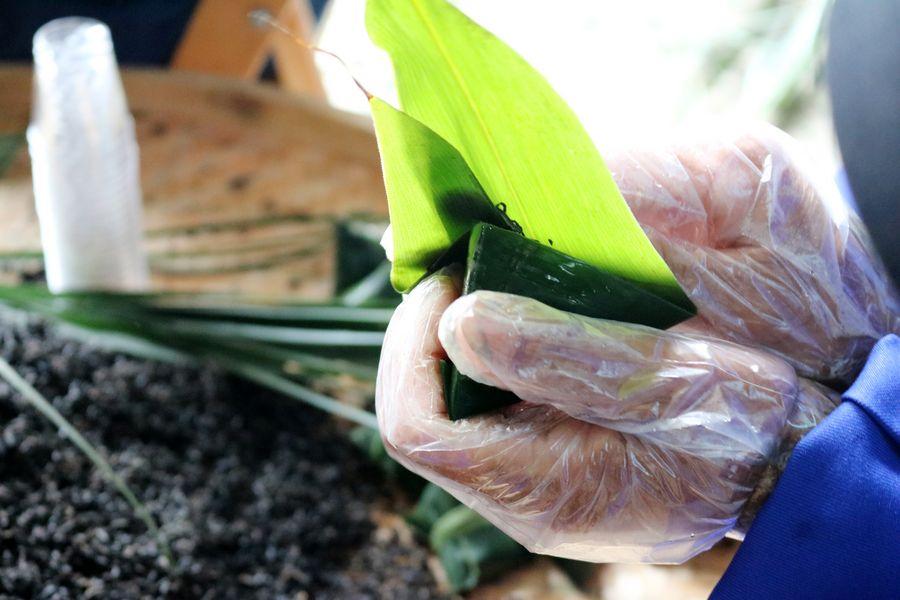
A worker wraps tea in ruo leaves. (Photo provided to Xinhua)
Jiang said that rather than using teabags made of filter paper or food-grade plastic, wild ruo leaves are more environmentally-friendly and the leaves make the tea taste even more delicious.
The sisters launched their new product in 2018 to coincide with the Dragon Boat Festival, when zongzi are traditionally eaten. The tea parcels, which cost 10 yuan (about 1.41 U.S. dollars) each, were an instant hit.
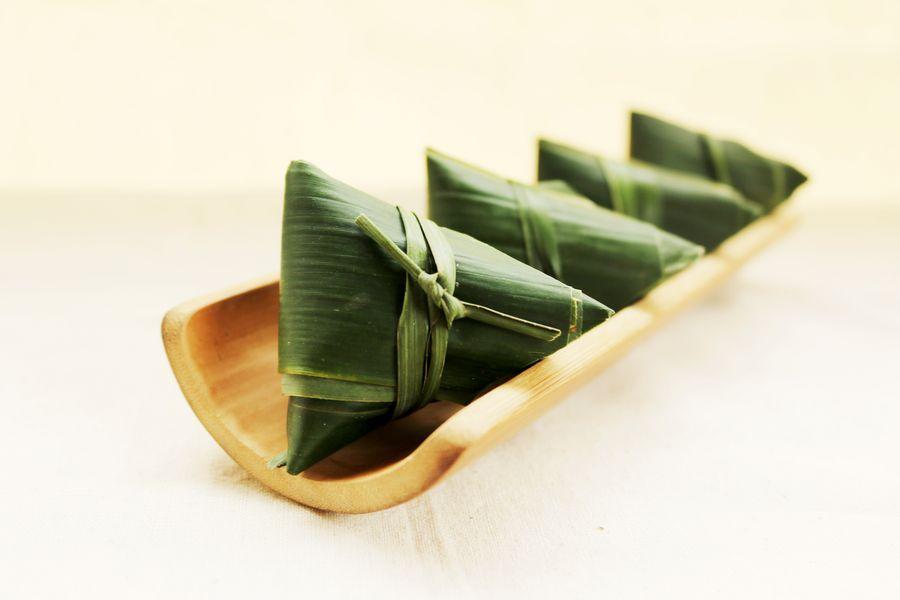
The zongzi tea (Photo provided to Xinhua)
"I like the flavor! The mix of sweet black tea and ruo leaves is really good," said one consumer on Taobao, China's largest online shopping website.
During the Dragon Boat Festival this year, which was in June, more than 300,000 were sold. Each month, the sisters dispatch 20,000 to 30,000 orders, and 100,000 were sold during the summer vacation.
Jiang believes in a balance between innovation and quality. Therefore, her team includes tea specialists. In addition, only organic fertilizers and environmentally-friendly pesticides can be used on the crops.
"We are still improving the product -- first China, next stop the world," said Jiang.








